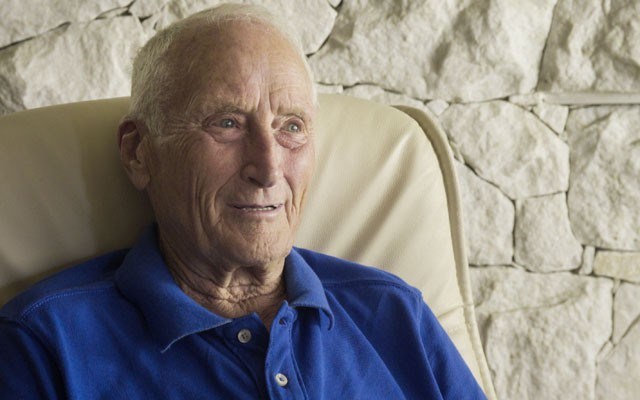As her new home was being built in the 1970s, Joan Richoz could see both the sun and many moons at the same time.
It was hot and the workmen constructing her house, including her husband, decided to wear their work boots, tool belts... and that's it. The builders were au natural.
"It was a hot summer! He just wore his carpenter's belt, and he wasn't the only person working on it," she recalls with a laugh.
This is just one of the funny and memorable stories of Whistler's early years captured in a new film, Whistler: From Wilderness to World Class.
The Mature Action Community Society (MACS), the Whistler Museum and Archives Society, and the Whistler Arts Council partnered under a grant from the federal government's New Horizons for Seniors Program for the project.
"For the last three or four years, it has been on the radar of MACS' members that we wanted to capture the stories of Whistler, not so much from a historical point of view, but from those funny, funky stories of what makes the heart of the community," says Sue Lawther of MACS.
Whistler's second wave of settlers, the people who came to the region to follow '60s and '70s powdery ski dreams, are getting older and MACS wanted to capture those memories before the recollections of that transitional era of hippie parties and big dreams is lost to history, Lawther adds.
"We realized that lots of our pioneers were passing away, and that created the sense of urgency. We're going to lose these stories if we don't do something fairly soon," she says.
In all, 17 Whistler veterans —including Richoz, who also acted as interviewer — took part. They included Paul Burrows, Drew Meredith, Isobel Maclaurin, Dick Gibbons, Kris Shoup, Linda Marshall, Garry Watson, Sue Adams, Jim Godfrey, Andy Peterson, Vincent Massey, Charlie Doyle, Toulouse, Nancy Wilhelm-Morden, Peter Alder and Kathy Macalister.
UBC film student Nathan Starzynski was selected as the director, cinematographer and editor. He said the interviews generated 20 to 30 hours of video footage, which needed to be cut down into a 22-minute project.
"It was a big undertaking, a bit more than anticipated. The biggest part of the project was sorting through all of it," he said.
"It was fantastic. I heard some amazing stories and got great perspectives on life in Whistler at that time."
The 2012 death of Florence Petersen, who was considered the resort's unofficial historian hit the community hard when it came to remembering the growth of the resort, Lawther says.
"That as much as anything made us sit up and say we needed to get these stories. There's lots of historical stories and the museum has a lot in the archive, but we wanted those really neat, funny stories, like the bank being put on skids and dragged away," she says.
Richoz adds: "But there are all kinds of people, some of them in the film, that not everybody knows their history or when they came. They have amazing stories of what it was like back then.
"One of the reasons we wanted to make the film and make it available is that young kids arrive here now and it is this amazing resort, but when we arrived here there was no grocery store. There was a gas station where you could buy white Sunbeam bread and milk. You had to go to Squamish or Vancouver for your food.
"There was no pharmacy, there were no doctors if you got sick. Luckily, our kids were really healthy. And there were no sewers to begin with. We were lucky, we found a spring on our property, so we had spring water for a number of years.
"Really, there was a ski hill and a couple of hotels and pubs and that was it. I think it is really important that people know what it was like then and what many of the people we interviewed did for the growth of Whistler."
Whistler: From Wilderness to World Class is being shown on Monday, March 21 at the Maury Young Arts Centre at 7:30 p.m. and will be made available online afterwards.




